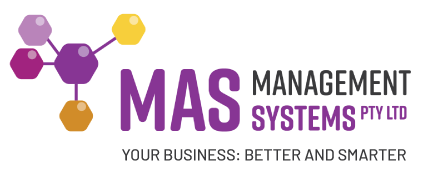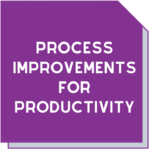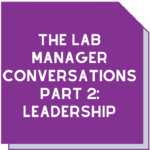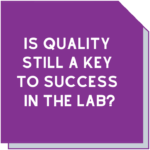The Lab Manager Conversations part seven – Quality
We’ve been speaking to lab managers and leaders about their roles and their challenges. These conversations have been collated into a series of articles that will probably resonate not only with lab leaders, but those across other businesses as well.
While their pathways may have been somewhat different, all our respondents have clocked up well over 10 years of experience prior to their current roles. They also cover the spectrum of calibration, chemical, microbiology, electrical, inspection and environmental laboratories.
And although they were pleased to talk through their issues, by request we’ve changed their names to maintain confidentiality.
A common thread
 Over the past six weeks, we’ve shared stories from lab managers about their roles. We’ve heard about their different experiences, how they deal with people and equipment management and other insights.
Over the past six weeks, we’ve shared stories from lab managers about their roles. We’ve heard about their different experiences, how they deal with people and equipment management and other insights.
However, there was one consistent message that came through in these discussions. All our respondents valued and modelled the concept of quality in their lab.
Communication and culture can go a long way to understanding quality and how it impacts the organisation. But people also need to know that carrying out their roles with a quality focus has a direct impact on the business.
“Quality Managers are task leaders,” said Lauren. “They don’t have to do the task itself; they just need to make sure it’s being done. It can be difficult for others in the organisation to understand exactly what the Quality Manager role is and why it’s there.”
Demonstrating quality
Just talking about quality outcomes isn’t enough. It appears that explaining to staff exactly what quality should look like in their everyday work is the key.
Daniel related a story about his time working in a business in China. Needing to overcome language and cultural differences, he created three simple rules. These gave staff guidance to help them in any given situation. The rules were:
- We live and die by quality
- Dates are important to us
- We can’t fix problems we don’t know about
 One day a project manager came to him and said there was a problem with a piece of machinery and 1,000 faulty items had been shipped.
One day a project manager came to him and said there was a problem with a piece of machinery and 1,000 faulty items had been shipped.
Before Daniel could react, the project manager went on to explain that he’d stopped the shipment, got people to work overtime to fix the issue then shipped again ensuring they’d meet the deadline.
“I went through a few emotions during that conversation,” he laughs. “But because he knew the rules, he did what needed to be done to meet the requirements of the business and the client. And got a great outcome.”
This level of clarity meant that as soon as the project manager saw the problem, he knew he had to act. Three simple rules gave him the ‘permission’ he needed to fix the problem and implement a solution quickly and effectively.
And this doesn’t just apply to your people. Daniel mentioned another business that had staff from their quality team regularly visit suppliers.
“They recognised that their suppliers’ problems quickly became their problems. The quality team took the time to discuss issues with suppliers, help where they could and built a solid relationship. Supply chains needs to be strong, and this was an excellent way to ensure it.”
While visiting and checking on suppliers may not be an option for all labs, building and maintaining good relationships with those suppliers certainly is. In fact, it reflects one of the principles of quality management in Dr W. Edwards Deming’s 14 points:
“End the practice of awarding business on the basis of price tag. Instead, minimize total cost. Move toward a single supplier for any one item, on a long-term relationship of loyalty and trust.”
Quality systems
All our respondents agreed that having a good quality system in place was critical. And this wasn’t just for the purposes of compliance.
“Of course, we can be a bit more mindful of recording things because we know that they’ll be checked during an assessment,” says Brian. “But the fact is, we’d need to have good systems and processes in place regardless. And they have to be simple, or people won’t use them.”
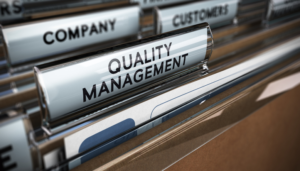 A good quality system also ensures continuity. Staff members will come and go but with a solid system in place, your processes won’t disappear when they do.
A good quality system also ensures continuity. Staff members will come and go but with a solid system in place, your processes won’t disappear when they do.
“Near enough is not good enough,” says Chris. “We have procedures and processes in place for a reason. We need to follow that line to both comply with the Standard and deliver good outcomes to clients.”
Everyone agreed that even the best quality system won’t make any difference if staff aren’t aware of it. Changes may occur because of industry shifts or standard updates. Communicate these changes to staff through the most appropriate methods for the business. This also allows staff to see that the system is dynamic and should reinforce why it’s there in the first place.
In some cases, this may require one-on-one training particularly for newer staff members. Since they’re still learning about their role, this is a valuable opportunity to talk through the change and how it may affect them.
Supporting improvement
How does improvement happen within a lab? It’s not just by having a policy that says you commit to continuous improvement! Again, communication appears to be the important factor here.
 Leaders must encourage staff to ask the question ‘what can we do to improve?’ in the knowledge that their suggestions won’t be ignored. And putting them in charge of making those changes is very empowering.
Leaders must encourage staff to ask the question ‘what can we do to improve?’ in the knowledge that their suggestions won’t be ignored. And putting them in charge of making those changes is very empowering.
“Everyone is expected to use the system we have in place to identify improvements,” says Chris. “Let’s say someone identifies a nonconformance requiring a corrective action. That person leads the change process, and we all learn from it. They’re given the responsibility to make the changes. That authority to act is a very important learning tool.”
A solid quality system also means you have checks already built in which allow everyone to identify those little gems for correction and improvement. What might start out as something that is a problem could lead to a great leap forward in improving how things occur in the lab.
Activities such as checking calibrations, internal audits and carrying out maintenance give staff the opportunity to make sure everything is working properly. And staff must understand that if they do find issues, they shouldn’t ignore early warning signs. Correction and improvement are everyone’s business!
Assessments can help!
While not a favourite activity, assessments by external bodies such as NATA can be beneficial. And feedback from Technical Assessors was seen as particularly useful.
“I’ve had some good discussions with the Technical Assessor and always get the feeling they’re trying to help,” says Brian. “I know it’s the accreditation body’s job to come in and check if there are any issues but chats during the breaks can give you some great ideas!”
As a lab manager who is also a Technical Assessor, Lauren agrees that this can be a great forum for discussions. “Some lab people don’t get the chance to network with their peers,” she explains. “Although they’re not always thrilled about the assessment, they do value the interaction that can occur informally. Obviously, we can’t give advice during an assessment, but we can talk in general terms about things we’ve seen.”
The Final Word
As we mentioned in our previous article, our respondents were clear about the need for safety protocols. While safety is built into systems through processes and procedures, it’s important to keep this front of mind.
“It’s fine to share a joke and a laugh,” says Sharon. “In fact, without that, work would be pretty dreary! But labs can be dangerous. This isn’t the place for fooling around and practical jokes.”
Clear guidelines including use of PPE, sample handling and testing procedures should be readily available. And regularly reinforce this through training.
Because the most important part of a Lab Manager’s role is ensuring everyone goes home safely at the end of their shift.
We hope you’ve enjoyed our Lab Manager Conversations series as much as we enjoyed putting it together! We’ll be combining all the conversations into a pdf for you to download.
And don’t forget, if you’d like to talk to us about how we can help your lab work better and smarter, please contact Maree (0411 540 709), Diane (0402 012 781) or email us at info@masmanagementsystems.com.au
Remember, you don’t have to do this alone!
Download the article The Lab Manager Conversations series – part seven
